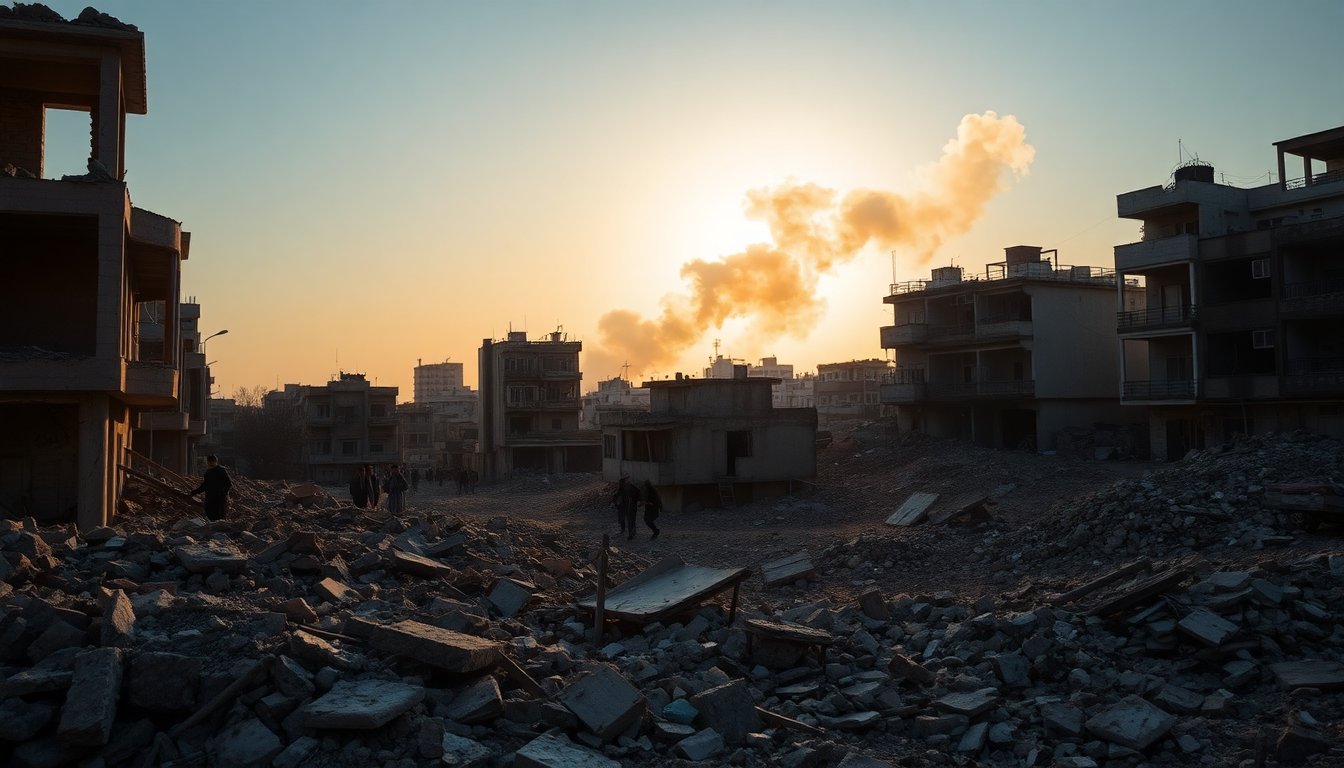Table of Contents
The recent escalation of violence in Gaza has undermined the fragile ceasefire established on October 11. On Sunday, the Israeli military conducted a series of airstrikes and artillery attacks targeting areas in southern Gaza, raising significant concerns about the possibility of a sustainable peace agreement.
Amidst a flurry of accusations between Israel and the Palestinian militant group Hamas, the situation remains volatile. The Israeli government claims these attacks are a necessary reaction to provocations from militants in the Rafah region, who reportedly opened fire on Israeli soldiers.
Escalation of hostilities
The Israeli military has stated that its recent operations targeted tunnels and military installations used by Hamas. Prime Minister Benjamin Netanyahu emphasized Israel’s commitment to respond decisively to any threats from Hamas and other militant groups.
In contrast, Hamas insists it remains dedicated to the ceasefire agreement. A representative from Hamas’s armed wing, the al-Qassam Brigades, reported no confrontations in Rafah, reiterating their commitment to maintaining peace throughout the Gaza Strip.
Reports of violence and casualties
Witnesses from various towns in Gaza described a chaotic scene, with explosions and gunfire resonating through the streets. Tank fire was reported in Abassan, while airstrikes occurred in Zawayda and Deir al-Balah. Medical personnel at Al-Aqsa Hospital confirmed that at least five lives were lost amid the violence.
The Gaza Health Ministry reported a total of eight fatalities linked to Israeli attacks within a 24-hour period, highlighting the human cost of the ongoing conflict. An Israeli military spokesperson stated that Hamas had engaged in multiple attacks against Israeli forces, including a sniper incident and a rocket-propelled grenade assault, which were described as violations of the ceasefire agreement.
Accusations of ceasefire violations
The ongoing conflict has seen escalating accusations, with both Israel and Hamas blaming each other for undermining the fragile peace. Israel’s Defense Minister, Israel Katz, stated that a clear delineation of the ceasefire boundary would be established. He warned that any breach would prompt immediate retaliatory action.
On the Palestinian side, senior Hamas leader Izzat al-Risheq reaffirmed their commitment to the ceasefire while accusing Israel of multiple violations. Reports indicate that Israel has been responsible for at least 47 violations since the ceasefire began, leading to civilian casualties and injuries.
Humanitarian concerns and aid issues
The ongoing violence has led to a worsening humanitarian crisis in Gaza. A ceasefire was expected to improve aid access, but many residents are facing severe food shortages, according to the IPC global hunger monitor. The situation has been aggravated by the closure of the Rafah border crossing, which has been largely closed since May 2024.
Moreover, the issue of returning deceased hostages remains contentious. Israel has demanded that Hamas fulfill its obligation to return the bodies of all remaining hostages. In contrast, Hamas has asserted that it has no plans to retain these remains, citing logistical difficulties in recovering bodies buried under rubble.
Challenges to peace negotiations
Amid ongoing tensions, significant obstacles remain for any efforts to broker peace. Key issues such as the disarmament of Hamas, governance in Gaza, the establishment of an international stabilization force, and the potential creation of a Palestinian state have yet to be thoroughly addressed. The U.S. administration faces a challenging task as it navigates these complex dynamics.
As violence escalates, market reactions in Tel Aviv indicate growing unease. Key share indices have dropped nearly two percent in response to the renewed conflict. The prospect of unrest continues to overshadow both the regional landscape and international diplomatic initiatives.


